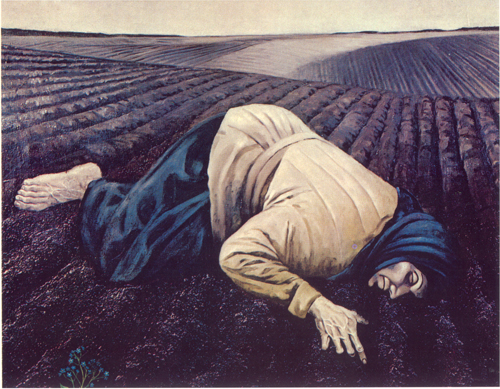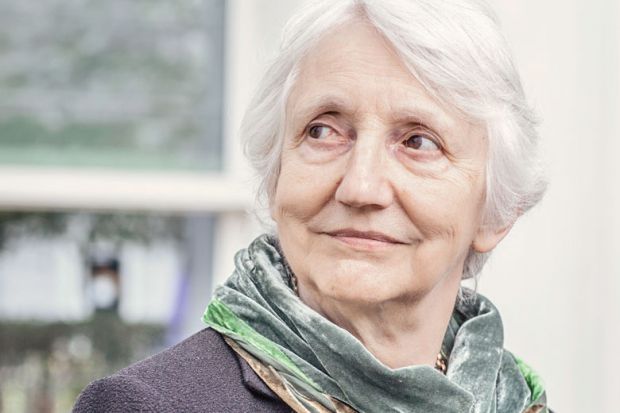The pleasures of affluence
What you spend your money on
Think about the last thing that you spent money on. Was it public transportation? Starbucks coffee or breakfast? The LSE Philosophy department spends money on you too. For example, we buy food and drinks for students at department parties and events several times a year. These things aren't essential, of course: nobody absolutely needs Starbucks coffee or department parties. But in the developed world we spend money on non-essential things. They just make life a little nicer.

LSE Philosophers spending resources on non-famine-related things
The problem of famine
Now that you have that clearly in mind, let me point out another fact — and I'm sorry to be the one to say this, but — according to the Food Aid Foundation, there are currently 795 million chronically undernourished people in the world. Another name for this is 'starving people'. That's about 1 out of every 9 people on the entire planet. 66 million of them are starving children, roughly the number of people living in the UK.
And almost all of the time, nobody does anything about it. Certainly not anything that significant. Usually not anything at all.

Starving child during the 2017 Somalian drought, which as of February 2018 continued to leave 6.2 million people without basic food, water or shelter.
That's not all: it appears that only £2.3 billion ($3.2 billion USD) is needed per year in order to completely end starvation among children of school-age, everywhere in the world. That may sound like a lot of money. But it would be raised if everyone in the UK were to donate an average of £3 a month (£3 × 12 months × 66 million Britons is roughly £2.3 billion). That is, the UK alone could literally end child starvation, at the cost of one Starbucks latte per person per month.
If we can end child hunger right here in the UK, then you might suspect that ending world hunger is actually not that hard. This is correct: the UN estimates that ending hunger entirely would only cost £22 billion ($30 billion USD). That would be achieved if everyone in Europe (about 743 million people) contributed an average of £3 per month. So, Europe could end world hunger entirely at a cost of one Starbucks latte per person per month. This could be significantly subsidised by going to war less often: by some calculations, the cost of the Iraq war is enough to end world hunger for 30 years.

A Starbucks latte costs £2.95.
A common response is to claim that starvation a result of overpopulation: so many number are being produced in poor countries that population growth is inevitable and unsustainable without 'culling' from starvation. Despite this common refrain, the 'problem' of an exploding population is largely a myth. Indeed, the UN forecasts that the 12th billion human will never be born, as the human population on Earth reaches a natural equilibrium. You can watch a brief video about this below.
'Overpopulation: The Human Explosion Explained' (by Max Roser and OurWorldInData.org)
So, starvation is happening. In principle we could stop it, and doing so would be both practical and sustainable. The question is: what, if anything, should we do about it?
The utilitarian response
Giving what you can
Once you see how easy it is to end starvation, it does seem pretty unjustifiable. One reasonable response is that we should immediately start doing something to stop it.

Bohdan Pevney (1963), 'Zemliia' (Earth), commemorating the Ukrainian Holodomor
This is a natural application of the utilitarian perspective on what the right thing to do. Classical utilitarians argue that you ought to act in a way that promotes — and indeed maximises — the total amount of goodness in the world. Following Mill, you might identify goodness with 'happiness'. Or you might identify goodness with something else — you are your own utilitarian after all. But not matter how they define it, utilitarians would seemingly agree that there is more goodness in ending starvation than in a monthly Starbucks latte for each of us.
How do we get started? According to Peter Singer, we ought to radically change our behaviour, and start donating to aid organisations that work to end starvation. How can one do that? A group of philosophers is on the case.

Giving What We Can: Donating large amounts of one's salary to charity
In 2009, Oxford philosopher Toby Ord launched Giving What We Can, a group of people who pledge to donate at least 10% of their income to charity. A year after its founding, the group gained 64 members, and has now grown to over 3,000 people, who have as of February 2018 donated over 25 million to charity. Professor Ord himself began by pledging to live on £18,000, donating around 45% of his (then) £33,000 salary at Oxford.
How do you know how to best use of your time and money? This is a considerable philosophical and technical problem in its own right. But the problem is being tackled effective altruism movement, which seeks to provide guidelines on the most effective way to raise the total 'goodness' in the world. For example, Oxford philosopher William MacAskill developed a non-profit called 80,000 hours (the total number of hours in the average career) to give advice on choosing a career that has the most positive social impact.
80,000 Hours Career ReviewsThus, one response to the problem of famine is clear: you could stop drinking Starbucks coffees and start trying to end world hunger. But why should you?
Singer's argument
Peter Singer is a utilitarian moral philosopher and an influential participant in the effective altruism movement.

Peter Singer, London 2016 (Chatham House)
In his 1971 article 'Famine, Affluence and Morality', Singer argued that,
"we ought to give money away, rather than spend it on clothes which we do not need to keep us warm. To do so is not charitable, or generous. Nor is it the kind of act which philosophers and theologians have called 'supererogatory' — an act which it would be good to do, but not wrong not to do. On the contrary, we ought to give the money away, and it is wrong not to do so." (Singer 1971, pg.235)
His argument turns on two premises.
[Assumption 1]: "suffering and death from lack of food, shelter, and medical care are bad." (Singer 1971, pg.231)
Although he says some "eccentric" philosophers may deny this, Singer takes this premise to be more or less self-evident. The meat of his argument is in his second premise.
[Assumption 2]: "if it is in our power to prevent something bad from happening, without thereby sacrificing anything of comparable moral importance, we ought, morally, to do it." (Singer 1971, pg.231)
Although he believes Assumption 2 is correct, Singer admits that making the claim of "comparable moral importance" might be viewed as extreme. But, he says, there is actually a weaker version of the assumption that is all he needs to make the argument for stopping famine:
[Assumption 2']: "if it is in our power to prevent something bad from happening, without thereby sacrificing anything morally significant, we ought, morally, to do it." (Singer 1971, pg.231)
Combining these assumptions with our observation above, that starvation can be prevented without making any morally significant sacrifices, it follows that we "ought, morally, to do it".
Unpacking Some Assumptions
Assumption 2' is deceptively simple, and has a number of significant consequences. Let's think through a few of them.
1. You are morally responsible for both action and inaction. Singer's assumes, like most utilitarians, that you can do sometimes wrong by not acting. You might say that you're not harming anybody by sitting in your flat all day. But there is still something wrong with this, according to utilitarians: it is probably not an activity that maximises goodness. This argument is sometimes made vivid with examples like the drowning baby example, discussed by James Rachels (1986): letting a baby drown in a bathtub appears to be morally just as bad as actively drowning it yourself. Similarly, Singer would say, letting someone die of starvation is just as bad as starving them yourself.

Rachels' drowning baby example: action and inaction of apparently equal moral significance
As a consequence, Singer finds the traditional distinction between duty and charity to be wrong. You are not just being 'nice' or 'charitable' when you donate money to stop starvation. It is your duty to do so, as much as you have a duty to your family or friends.
2. Distance doesn't matter. According to the utilitarian, your job is to maximise total goodness in the world. So, it doesn't matter whether there's a starving person in the house next door, or in a far-away country. As long as there are no (morally significant) negative consequences, you should act to prevent starvation.

Why does Singer think distance doesn't matter? Don't you have a special obligation to your family, your friends, or your country? Singer replies, perhaps controversially:
"I do not think I need to say much in defense of the refusal to take proximity and distance into account. ... If we accept any principle of impartiality, universalizability, equality, or whatever, we cannot discriminate against someone merely because he is far away from us" (pg.232).
3. It doesn't matter how many other people can help. Singer, like most effective altruists, argues that you should help as much as you possibly can, even though you shouldn't have to if everybody else helped too. Note that the effective altruism movement isn't just asking you to give up one Starbucks latte a month: they're asking you to donate as much as you can. Why?
Singer says that it's because, as an individual, you shouldn't expect others to behave morally. They probably won't. But that doesn't change your responsibility. So, since most people won't donate, you really ought to donate as much as you can.

8.8 million Londoners could also help stop starvation, but may or may not do so.
4. You don't have to live in poverty. By adopting Assumption 2', you only need to give as much as you can until it starts to become morally significant. So, you don't have to donate so much money that you can't get a university education, since this would be morally significant. You don't even have to go hungry from time to time, since this is (arguably) morally significant too. But you do have to stop buying unnecessary things. You have to stop doing what most of us do, all the time, as affluent members of a developed society.

Unnecessary Victorian accessories
5. Your moral decision-making should be pretty impersonal. Part of Singer's story is that your moral decisions do not depend crucially on your relationships with others. Your particular experiences with others should not play a significant role in your decision-making here. Like a good utilitarian, Singer is asking you to step outside yourself as an individual, look at how to improve the total goodness in the world as a whole, and then take action so as to maximise that goodness.
A question for you is then the following: is such an impersonal account acceptable, when it comes to moral decision-making?
The Kantian response
O'Neill's argument
Philosophers that follow the central ideas of Kant are called Kantians. The Kantian perspective on moral philosophy differs radically from the utilitarian one described above. Instead of maximising goodness, Kantians demand that we ought to act so as to satisfy a universal moral law, which Kant calls the Categorical Imperative. What is the significance of this law for the problem of starvation?
The first expression of the Categorical Imperative that Kant gives is the following.
Categorical Imperative (1st Formulation): "act only according to that maxim [guiding principle or rule] through which you can at the same time will that it become a universal law."
Kant also gave a second formulation of the Categorical Imperative, which he took to be equivalent to the first:
Categorical Imperative (2nd Formulation): "Act in such a way that you treat humanity, whether in your own person or in the person of any other, never merely as a means to an end, but always at the same time as an end."
Onora O'Neill, a Cambridge philosopher and member of the House of Lords, has argued that this second formulation has an important application to starvation. She begins by pointing out a natural interpretation of the "mere means" in the Second Formulation. You are certainly allowed to treat someone as a means to an end. For example, you treat the cashier as a means to an end when you give them money for an item at the store. But the person is not 'mere' means if they consent to the action. This allows the cashier to take their own interests into account (for example, to make a living wage), and so the action is allowed by the Categorical Imperative.

Onora O'Neill
For Kantians, your actions say something about the general 'maxim' or rule you intend to follow. For example, the statement, one should donate towards starvation relief is an example of a maxim. The maxims that you ought to follow all ultimately derive from (one or another) formulation of the Categorical Imperative. So, the question for Kantians is what that Categorical Imperative says about donating to stop hunger.
O'Neill identifies two consequences of the Second Formulation that the Kantian ought to care about:
1. You ought to act to prevent injustice. Injustice typically occurs in situations where consent is broken. For example, when you break a promise to someone, you do not allow their consent; if they gave their consent to break a promise, then it wouldn't be a promise in the first place.
More significantly, colonial injustice is an example of failure of consent. When European countries made trade and land deals with indigenous cultures that the latter did not understand, there was a failure of consent. The consequences of this injustice is perhaps partly responsible for the poverty and starvation that we see in many regions today. Thus, a Kantian perspective, we may have some obligation to correct past colonial injustices.
2. You ought to act in a minimally beneficent way. If a person lacks so many resources (such as food or shelter) that they cannot make any decisions without some amount of coercion taking place, then you simply cannot interact with them without treating them as a mere means. In such cases, Kantians are seemingly obligated to give at least the minimal amount needed for such interactions to be possible. This may require some donation to stop starvation.
This of course requires you to have some interaction with the impoverished person. Otherwise, it is hard to see how you are treating them in any way at all, let alone as a mere means. However, in the current globalised world, it is perhaps possible that just by purchasing an item of clothing or food, you are already treating starving people as mere means, by effectively coercing them into their current working conditions.
Giving just enough
Although Kantians do seem to have an argument that one should donate money to the starvation problem, the reaction is much less radical than the utilitarian one: you do not necessarily need to donate all your money, and there appear to be many morally acceptable ways for you to live your life without doing anything at all for starving people.
Although this may be an easier way of life than the one utilitarians and effective altruists propose, your problem as a moral agent is not necessarily to do what's easy, but to do what's right.